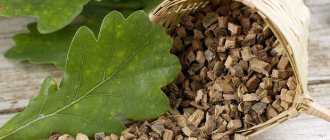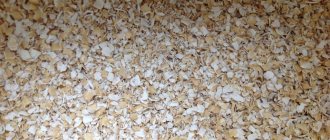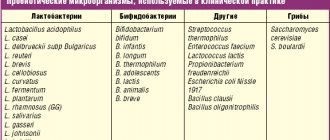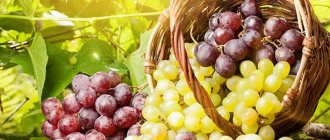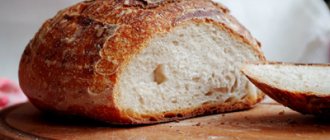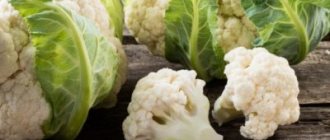The type and severity of symptoms may vary from person to person. Some people experience constipation only occasionally, while for others it is a chronic condition. Constipation has many causes, but is often the result of food moving slowly through the digestive system. This can be caused by dehydration, poor diet, certain medications, medical conditions, illnesses affecting the nervous system, or mental disorders.
Fortunately, certain foods can help relieve constipation by adding bulk to the stool, softening and loosening the stool, decreasing the transit time of stool through the intestines, and increasing the frequency of bowel movements.
Here are 17 of the best foods for constipation that can help relieve the condition and promote regular bowel movements.
Prunes
Prunes Prunes
are a laxative food for constipation. Dried plums, known as prunes, are widely used as a natural remedy for constipation. They contain a large amount of fiber - 3.1 grams per 100 grams of product (about 9 prunes), which is 12% of the recommended daily intake.
The insoluble fiber in prunes, called cellulose, increases the amount of water in the stool, which adds bulk. Meanwhile, the soluble fiber in prunes ferments in the colon to form short-chain fatty acids, which also increases stool weight.
In addition, prunes contain sorbitol. This sugar alcohol is poorly absorbed by the body, causing water to be drawn into the colon, resulting in a laxative effect in a small number of people.
Finally, prunes also contain phenolic compounds that stimulate beneficial gut bacteria. This is believed to contribute to the laxative effect of this product. A study of 40 people with constipation found that eating 100 grams of prunes per day significantly improved stool frequency and consistency compared to treatment with psyllium husk, which is a type of dietary fiber.
You can eat prunes on their own or add them to salads, breakfast cereals, oatmeal, baked goods, smoothies and stews.
You can learn more about the benefits of prunes here - Prunes: benefits and harm to the body.
Products for constipation in pregnant and lactating women
There are additional restrictions during pregnancy, so you should be extremely careful when choosing laxative foods. Legumes and cabbage often cause bloating, so you should avoid them.
Vegetable oil can negatively affect the liver, as it provokes a choleretic effect. Dietary fiber contained in foods sometimes causes reflex stimulation of the uterus in pregnant women, which is dangerous for the baby.
To improve bowel movements, it is useful to eat fresh blueberries on an empty stomach, but at the same time, it is better to avoid compote from this product. If there is no allergy, then you should resort to treatment with honey.
In addition, you should pay attention to dried fruits, berries, stewed vegetables - they will improve bowel movements without harm to health.
During the feeding period, citrus fruits and honey are unacceptable. Kefir, stewed vegetables, olive oil are useful.
Apples
Apples
Apples are rich in fiber. In fact, one medium-sized apple with peel (about 182 grams) contains 4.4 grams of fiber, which is 17% of the recommended daily intake.
About 2.8 grams of this fiber is insoluble, and 1.2 grams is soluble, mainly in the form of dietary fiber called pectin. In the intestine, pectin is quickly fermented by bacteria to form short-chain fatty acids, which draw water into the colon, softening the stool and reducing the time it takes for stool to move through the intestines.
One study of 80 people with constipation found that pectin can speed up the movement of stool through the intestines, relieve symptoms of constipation, and increase the number of beneficial bacteria in the intestines.
Another study found that rats given apple fiber increased the frequency of bowel movements and stool weight, despite being given the constipating drug morphine.
Eating apples is an easy way to add fiber to your diet and relieve constipation. You can eat them straight, make juices or salads from them, or eat apple pies. Granny Smith apples are particularly high in fiber.
Pears
Pears
The list of the best foods for constipation includes pears. Pears are another high-fiber fruit, containing approximately 5.5 grams of dietary fiber in a medium-sized fruit (about 178 grams). This is 22% of the recommended daily fiber intake.
In addition to fiber, which helps relieve constipation, pears contain high amounts of fructose and sorbitol compared to other fruits. Fructose is a type of sugar that is poorly absorbed or metabolized by the body. This means that some of it enters the colon, stimulating bowel movements.
Pears also contain the sugar alcohol sorbitol. Like fructose, sorbitol is poorly absorbed in the body and acts as a natural laxative by drawing water into the intestines.
You can incorporate pears into your diet in a variety of ways. Eat them raw or cooked, or include them in salads, savory dishes and baked goods.
Combinations of products that give a quick laxative effect
Foods and drinks that can serve as laxatives for adults include:
- Cereal porridge with bran is a good laxative. Pearl barley, buckwheat, millet porridge in water with the addition of wheat, oat and rye bran will help normalize stool in adults.
- Add a laxative mixture of dried fruits and senna herbs with honey. Senna has a good laxative effect; adults should not use it for a long time. Dried fruits without adding the plant help cope with constipation, but not quickly.
- Panicle salad is popular among adults. The composition includes raw vegetables: carrots, beets, white cabbage. Do not add salt to the ingredients, but season with vegetable oil.
- The combination of natural fermented milk products, bran or seeds allows adults to quickly cope with the problem of constipation.
- Fruit laxative salad made from fresh and dry fruits for constipation. Apple, raisins, pineapple, prunes, dried apricots are mixed in arbitrary proportions and consumed throughout the day.
Kiwi
Kiwi
If you are wondering what foods to eat for constipation, you should try kiwi. From one kiwi fruit (about 76 grams) you can get about 2.3 grams of fiber, which is 9% of your recommended daily intake.
One study involved 38 people over 60 years of age. They received one kiwi per 30 kg of body weight daily. This resulted in an increase in the frequency and ease of bowel movements. This fruit also softened and increased the volume of stool.
Another study in people with constipation found that eating two kiwis daily for four weeks resulted in easier bowel movements, decreased use of laxatives, and an overall improvement in bowel habits.
Additionally, in a third study, 54 people with irritable bowel syndrome (IBS) consumed two kiwis per day for four weeks. At the end of the study, participants reported increased frequency of bowel movements and faster transit time of stool through the colon.
This is not only due to the fiber present in kiwi, which is believed to combat constipation. An enzyme called actinidain is believed to be responsible for kiwi's beneficial effects on bowel movement and habits.
Kiwis can be eaten raw - just peel them and eat the green pulp and seeds. They make a great addition to fruit salads and can be added to smoothies for a fiber boost.
Read more about the beneficial properties of kiwi on this page - Kiwi: benefits and harm to the body.
List of foods that cause constipation
Products that are absorbed too quickly by the human body negatively affect the functioning of the digestive tract. They do not require additional effort from the intestines. Such products are easily broken down by gastric juice and absorbed into the blood. The intestines do not need to work. Its peristalsis slows down, and constipation develops.
Another cause of constipation is the consumption of foods that require too much processing in the intestines. Here, peristalsis also slows down to ensure complete digestion of food.
Stool Firming Products:
- Meat, poultry and fish. The situation is aggravated when consuming fatty varieties. Adding side dishes low in fiber (potatoes, rice, pasta) worsens intestinal function. Meat is a heavy food that takes a long time to digest in the intestines. Daily consumption of meat dishes (without added fiber) leads to the development of constipation.
- Fast food. French fries, chips, salty crackers, hamburgers, instant noodles, etc. are prohibited. These products contain little fiber, but are rich in flavor enhancers, quickly digestible carbohydrates, and dyes. Additives included in such dishes slow down intestinal motility and disrupt the functioning of the stomach.
- Flour products. Loaves made from white flour, buns, and sweet baked goods inhibit intestinal motility and lead to the development of constipation.
- Sausages and smoked meats. Excess fat in food slows down colon emptying.
- Caffeine-rich foods. Tea, coffee and cola are prohibited. They negatively affect the functioning of nervous tissue, inhibit intestinal motility, and promote dehydration.
- Some vegetables. It is not recommended to get carried away with potato dishes - they are rich in starch and negatively affect the functioning of the digestive tract. If you are prone to constipation, you should avoid celery - the substances that make up its above-ground part slow down intestinal motility.
- Some fruits. Eating unripe bananas, which are rich in starch, can cause constipation. Persimmon peel also makes bowel movements difficult. Pomegranate juice contains tannins, which strengthen the stool.
- Milk and dairy products. They are traditionally classified as laxatives, but recent studies refute this. It is believed that consuming large amounts of dairy products slows down intestinal motility. Yogurts, whey drinks and other products rich in dyes and preservatives will not be beneficial.
Be sure to read: Intestinal colic in a child: symptoms and treatment (first aid, medications, nutrition)
Figs
Figs
Eating figs is a great way to increase your fiber intake and promote healthy gut habits.
One medium-sized fresh fig (about 50 grams) contains 1.6 grams of fiber. What's more, just 75 grams of dried figs contain 7.3 grams of fiber, which is almost 30% of your recommended daily intake.
A study conducted on dogs examined the effects of fig paste on constipation over a three-week period. Scientists found that fig paste increased stool weight and decreased the transit time of stool through the intestines.
Another study of 40 people with constipation found that eating 300 grams of fig paste per day for 16 weeks helped speed up intestinal transit, improve stool consistency and relieve stomach discomfort.
Interestingly, figs contain an enzyme called ficain, which is similar to the enzyme actinidain found in kiwi. Along with its high fiber content, it is believed that figs may contribute to the positive effects of figs on bowel function.
Figs are a delicious snack on their own and also pair well with both sweet and savory dishes. It can be eaten raw, cooked or dried, and pairs well with cheese and meat, and can also be added to pizza, baked goods and salads.
Read in detail about dried fruits for constipation - Dried fruits: raisins, prunes, dried apricots and figs for constipation.
Foods that cause constipation
Abuse of any food can provoke digestive disorders. In the modern world, people are often too busy to prepare “proper” food for themselves, so they often resort to fast food or delivery of ready-made meals, which are rarely of good quality.
To figure out which foods cause constipation, sometimes it is enough to monitor your own sensations, since each body is individual and can react differently to a particular food.
This also includes semi-finished products and canned food. Most often they contain so-called “fast carbohydrates”. Their use causes immediate satiety, but after a short period of time the feeling of hunger arises again.
Very often, prepared food products are made from low-quality raw materials, or various chemicals are added to improve their taste. In addition to the fact that they cause difficulties with defecation, there is a risk of an allergic reaction or poisoning.
High in protein
Normal functioning of the human body is usually impossible without the consumption of protein products. However, excessive infatuation with them leads to a slowdown in the rate of transit of food contents, deterioration of peristalsis and accumulation of feces.
When eating large amounts of food high in protein, it is important to understand that not all the mass will have time to be digested in the intestines.
Its prolonged stagnation in the final sections of the gastrointestinal tract is fraught with intensification of putrefaction processes, during which a mass of toxic substances is formed that are reabsorbed into the systemic bloodstream. A person feels discomfort in the abdomen, signs of flatulence appear (bloating, release of gases with an unpleasant odor, rumbling) or pain.
The most common protein foods that cause constipation are:
- Plant origin:
- Nuts – walnuts, almonds, peanuts;
- Legumes – most varieties of beans, soybeans;
- Cereals – millet, lentils, rice, semolina.
- Animal origin:
- Chicken eggs, especially hard-boiled ones;
- Fatty varieties of lamb, pork, beef, goat meat;
- Caviar of sea and river fish;
- Fish with red meat;
- Crustaceans and shrimps.
The patient's condition is aggravated by cooking these products by frying, smoking or over an open fire. It should also be taken into account that butter and margarine in large quantities have a strengthening effect.
It should be understood that with a reasonable combination of meat products and vegetables, problems should not arise. Plant fiber compensates for difficulties with peristalsis by stimulating it.
Milk and its derivatives
Dairy products are important in the growth and development of a child. But if used incorrectly, they can cause constipation in the following cases:
- Lactase deficiency, in which the body synthesizes few (or no) enzymes responsible for the breakdown and digestion of dairy products. If you or your child experience constipation, diarrhea, nausea, or more severe reactions when consuming them, you should eliminate them from your diet and consult a doctor.
Dairy products contain a substance called casein. In large quantities, it envelops the intestinal mucosa, slowing down the absorption and digestion of food.- Abuse of dairy products. This usually happens when following specific untested diets.
It should be borne in mind that it is better for adults to consume fermented milk products, since whole milk is quite difficult for their body to digest. Moreover, the lower the fat content of the cottage cheese, the more likely it is to cause constipation.
Plants with astringent action
Although in almost any article on dietary nutrition for constipation you will find recommendations to consume more foods containing plant fiber, the following nuances should be taken into account:
- Not all fruits, vegetables or berries are good for constipation;
- Many plant products contain large amounts of starch and tannins, which have an astringent effect and slow down the progress of the food bolus;
- If the diet contains only fruits and vegetables, you should expect the opposite problems with bowel movements - there is a risk of diarrhea;
- Almost all unripe (“green”) fruits and vegetables also have astringent properties;
- Abuse of food of plant origin increases the fermentation processes in the intestines during constipation, which causes flatulence and other unpleasant consequences.
The following fruits and vegetables are known to cause constipation:
- Unripe bananas. Sometimes sellers treat these fruits with special products that accelerate the yellowing of the peel, so you also need to focus on your taste;
Grenades;- Quince;
- Different varieties of potatoes;
- A large number of grapes;
- Beans;
- Spinach;
- White cabbage;
- Mushrooms.
It is also important to remember that various spices and additives such as onions, garlic or hot peppers have a strong irritating effect, disrupting digestion.
Confectionery and baked goods
Many of us love delicious sweets. However, they often only worsen digestion and can cause constipation due to their high content of fat, sugar, cocoa, chemical additives or flour.
The most dangerous in this regard are the following sweets and baked goods:
- Yeast dough (especially fresh white bread);
- Baking;
- Various types of cookies, pastries, cakes and sweets.
If you have constipation, you should also limit the consumption of sugar, soft pasta (the cheapest representatives, which are most often found on store shelves), and products containing cocoa.
Beverages
Not all liquids consumed soften the stool. For constipation, he recommends drinking mineral waters or diluted fruit juices. The following drinks can cause constipation:
- Carbonated water, especially with dyes;
- Alcohol – wine, beer, spirits;
- Strong tea and coffee;
- Cocoa with milk;
- Decoctions of herbs with an astringent effect (St. John's wort, oak bark, sticky alder, sage, chamomile, knotweed).
Consumption of alcohol-containing drinks leads to the development of dehydration and intoxication of the human body, which affects the character of the stool.
Red wine contains large quantities of tannins, which have a strengthening effect.
Citrus fruit
Oranges
The best foods for constipation include citrus fruits such as oranges, grapefruits and tangerines - they are a refreshing snack and a good source of fibre.
For example, one orange (about 131 grams) contains 3.1 grams of fiber, which is 13% of the recommended daily fiber intake. Meanwhile, one grapefruit (about 236 grams) contains 2.6 grams of fiber, which corresponds to 10% of your daily requirement.
Citrus fruits also contain a lot of soluble fiber, pectin, especially in the peel. Pectin can speed up intestinal transit and reduce constipation. Additionally, citrus fruits contain a flavanol called naringenin, which may contribute to the beneficial effects of citrus fruits on constipation.
Animal studies have shown that naringenin increases fluid secretion in the colon, causing a laxative effect. However, more human studies are needed.
It's best to eat fresh citrus fruits to get the maximum amount of fiber and vitamin C. Oranges and tangerines make convenient snacks, and grapefruit works well tossed into salads or cut in half for breakfast.
Spinach and other green vegetables
Spinach
Green vegetables such as spinach, Brussels sprouts and broccoli are not only rich in fiber, but are also excellent sources of vitamin C, vitamin K and folic acid.
These green vegetables help add bulk and weight to the stool, making it easier to pass through the intestines.
100 grams of cooked spinach contains 2.4 grams of fiber, or 10% of the recommended daily intake. To incorporate spinach into your diet, try adding it to casseroles, pies, or soups. Baby spinach can be added to salads or sandwiches to increase the amount of fiber in your diet.
Brussels sprouts are very healthy and many people find them delicious. Just five sprouts provide a whopping 10% of your daily fiber needs and only 36 calories. They can be boiled, steamed, grilled or fried and are delicious served hot or cold.
Broccoli contains 3.6 g of fiber in just one stalk (about 150 g). This is equivalent to 16% of your recommended daily fiber intake. It can be cooked and added to soups and stews, and eaten in salads or as a snack.
Jerusalem artichoke and chicory
Jerusalem artichoke
Among the products that help with constipation, Jerusalem artichoke (earthen pear) and chicory should be highlighted. Jerusalem artichoke and chicory are members of the sunflower family and are important sources of a type of soluble fiber called inulin. Inulin is a prebiotic, meaning it helps stimulate the growth of bacteria in the gut, promoting digestive health. It is especially useful for bifidobacteria.
A review of studies found that inulin increases bowel movements, improves stool consistency, and reduces intestinal transit time. It also increases the bacterial mass in the stool, making it bulkier.
A recent study of 44 healthy adults with constipation found that taking 12 grams of inulin from chicory daily increased bowel movements and softened stools.
Jerusalem artichoke - tubers that have a nutty taste. They can be fried, steamed, boiled or pureed.
Chicory root is not commonly found in supermarkets, but has become a popular coffee alternative in its ground form.
Menu for the week to normalize peristalsis
Constipation, like diarrhea, can cause a lot of trouble. And to avoid defecation delay, you need to eat well. The menu must include products from the permitted list.
Unstable bowel function can be associated with a passive lifestyle, diseases of the digestive system, excess weight, and abuse of carbonated drinks. If constipation is not eliminated, toxic substances will be absorbed into the blood. Against this background, this person is bothered by acne and headaches. The skin has an unhealthy color, irritability and fatigue appear. Therefore, it is important to properly build a diet for constipation in adults.
Let's look at an approximate menu for 7 days.
Monday
- Breakfast – grated carrots with almonds and honey, a glass of juice.
- Snack – a slice of bran bread, salad with tomatoes.
- Lunch – vegetable borscht, baked chicken.
- Dinner – boiled pollock, cabbage salad.
- At night - yogurt, a few prunes.
Tuesday
- Breakfast – buckwheat with dried apricots, 200 ml of yogurt.
- Snack – curd pudding with dried cranberries.
- Lunch – fish soup with barley, bread with cheese, beet caviar.
- Dinner – rabbit cabbage rolls, carrot juice.
- At night - kefir, oat bran.
Wednesday
- Breakfast – pumpkin porridge, figs, chicory tea.
- Snack – cottage cheese with apples, compote.
- Lunch – broccoli soup, steamed turkey cutlet.
- Dinner – stewed rabbit with carrots, pearl barley.
- At night - bread, fermented baked milk.
Thursday
- Breakfast – a cup of green tea, strawberries.
- Snack – bran with kiwi and pear.
- Lunch – wheat porridge with cutlet, beet salad, compote.
- Dinner – oatmeal with turkey, cucumber salad.
- At night - kefir.
Friday
- Breakfast – biscuits, compote.
- Snack – cottage cheese with peaches.
- Lunch – lean fish soup, buckwheat with carrots.
- Dinner – veal with vegetables, fresh salad.
- At night - a glass of yogurt.
Saturday
- Breakfast – green tea, pear.
- Snack – bran with apricots and raisins.
- Lunch – zucchini casserole with chicken, cheese, tea.
- Dinner – chicken noodle soup, meatballs.
- At night - yogurt.
Sunday
- Breakfast – cottage cheese with sour cream.
- Snack – grated carrots, rosehip infusion.
- Lunch – borscht without meat, potatoes with chicken drumstick.
- Dinner – stuffed peppers, salad.
- At night - compote of berries and fruits.
A diet to normalize intestinal motility should include dishes with a delicate consistency. If there are pieces of meat or vegetables present, they must be chewed thoroughly. Monitor the temperature of the food, it should be warm.
There is a folk recipe that helps strengthen peristalsis. To do this you will need 380 grams of dried apricots and pitted prunes. Pass dried fruits through a meat grinder. Add a couple of tablespoons of dry fiber, the same amount of propolis and 180 grams of bee honey, mix. During the evening meal it is recommended to eat 2 tsp. prepared mixture.
Artichoke
Artichoke
Scientific research shows that artichokes have a prebiotic effect, promoting good health and regular bowel movements.
Prebiotics are non-digestible carbohydrates, such as inulin, that feed the good bacteria in your gut, increasing their numbers and protecting them from the growth of bad bacteria.
One study found that people who consumed 10 grams of fiber from artichokes daily for three weeks had higher levels of beneficial bacteria, Bifidobacteria and Lactobacilli. It was also found that levels of harmful bacteria in the gut decreased.
In addition, prebiotics have been found to increase bowel movements and improve stool consistency in people with constipation.
Cooked artichokes can be eaten hot or cold. The outer petals can be removed and the fleshy part eaten with sauce or gravy. The artichoke heart can be removed and cut into pieces.
Rhubarb
Rhubarb
Foods for constipation include rhubarb, a leafy plant well known for its bowel-stimulating properties. It contains a compound called sennoside A, better known as Senna, a popular herbal laxative.
A study done in rats found that sennoside A in rhubarb works by reducing levels of aquaporin 3, a protein that regulates water movement in the intestines. Lower levels of aquaporin 3 mean less water moves from the colon back into the bloodstream, making stools softer and facilitating bowel movements.
In addition, 100 grams of rhubarb contains 1.8 grams of dietary fiber, which provides 7% of the recommended daily intake.
Rhubarb leaves cannot be eaten, but the stems can be chopped and boiled. Rhubarb has a tart flavor and is often sweetened and added to pies and fruit cakes. It can also be added to oatmeal or muesli to add fiber to your breakfast.
Yam (sweet potato)
Sweet Potatoes
If you are wondering what foods to eat for constipation, try adding sweet potatoes to your diet. Sweet potatoes are a low glycemic index alternative to regular potatoes. It also contains a good amount of fiber, which helps relieve constipation. One medium-sized sweet potato (about 114 grams) contains 3.8 grams of fiber, which is 15% of the recommended daily intake.
Sweet potatoes contain mostly insoluble dietary fiber in the form of cellulose and lignin. It also contains the soluble fiber pectin. Insoluble fiber can help improve intestinal motility, adding bulk and weight to stool.
One study looked at the effects of eating sweet potatoes on people undergoing chemotherapy. After four days of eating 200 grams of sweet potatoes per day, participants experienced relief from constipation symptoms and reported less straining and discomfort compared to the control group.
Sweet potatoes can be fried, steamed, boiled, or mashed. It can be used in any recipe that calls for regular potatoes.
Products that strengthen the chair
Due to its high fiber content, persimmon can lead to constipation.
It's worth starting with bananas. In principle, constipation in adults and children is caused by absolutely all fruits and vegetables that contain large amounts of starch. It is necessary to mention that these include all unripe vegetables and fruits. The same green bananas, for example, contain almost three times more starch than ripe ones.
Which vegetables and fruits contain a large amount of it? Among them:
- potato;
- legumes;
- blackthorn;
- gooseberry;
- pomegranate (especially pomegranate juice strongly strengthens the stool);
- celery (relevant only for the above-ground part, but the root is rich in fiber);
- coffee (caffeine, in principle, inhibits intestinal motility, so black tea should also be limited in the diet);
- persimmon (but, by the way, it also contains a huge amount of fiber, which is just useful for intestinal congestion).
That is, in order to reduce the likelihood of developing intestinal obstruction, the above vegetables and fruits should be partially abandoned. Especially fresh. After heat treatment, part of the starch simply breaks down into derivatives. But this does not apply to fried potatoes, for example. Although a certain part of the starch in it disappears, large amounts of fat and salt provoke excessive stress on the gastrointestinal tract and fecal dehydration.
Beans, peas and lentils
Beans
Beans, peas and lentils, also known as legumes, are one of the cheapest, fiber-rich food groups you can include in your diet. For example, a 200 gram serving of cooked white beans contains a whopping 21 grams of fiber, which is 84% of the recommended daily intake.
Plus, just 100 grams of cooked lentils contain 7.8 grams of fiber, which meets 31% of your daily needs.
Legumes contain a mixture of both insoluble and soluble dietary fiber. This means they can relieve constipation by adding bulk and weight to stool, as well as softening it to make bowel movements easier.
To include more legumes in your diet, try adding them to soups, making pasta, adding them to salads, or adding them to meat dishes for extra bulk and flavor.
Chia seeds
Chia Seeds
If you are wondering what foods help with constipation, you should consider including some chia seeds in your diet. Chia seeds are one of the richest foods in fiber. Just 30 grams of chia seeds contain 11 grams of fiber, which corresponds to 42% of the daily intake. The dietary fiber in chia seeds consists of 85% insoluble fiber and 15% soluble fiber.
When chia comes into contact with water, it forms a gel. In the bowel, it can help soften the stool and make it easier to pass. What's more, chias can absorb up to 12 times their own weight in water, which can help add bulk and weight to stool.
Chia seeds are very versatile and can be added to many foods, greatly increasing their fiber content without much effort. They go great with breakfast cereals, oatmeal or yogurt. You can also add them to a smoothie or vegetable juice, or mix them into gravy, salad dressings, or add to baked goods or desserts.
Read more about chia seeds here - Chia seeds: beneficial properties and contraindications, how to use.
Recipes for constipation
The question of what to eat if constipated arises among those who are concerned about this problem. In fact, you can create a very tasty and varied menu. Difficulties often arise when finding the necessary recipes. Below we will take a closer look at several dish options.
Chicken soup with cream
Ingredients:
- Water – 3 l.
- Chicken – 300 g.
- Potatoes – 5 pcs.
- Onions – 50 g.
- Carrot – 1 pc.
- Champignons – 100 g.
- Low-fat cream – 50 ml.
- Olive oil – 25 ml.
- Dill – 0.5 tbsp.
- Salt - to taste.
How to cook:
- Boil the chicken in salted water. Add chopped potatoes and cook until soft.
- Peel the onions, carrots, and champignons. Rub the root vegetable into large strips and cut the onion into small cubes. Fry the vegetables in olive oil.
- Grind the potatoes with meat into a puree, add fried vegetables. Before serving, add a small amount of light cream and chopped dill to the bowl of soup.
Stewed rabbit with pumpkin
Ingredients:
- Water – 2 tbsp.
- Rabbit fillet – 500 g.
- Pumpkin – 350 g.
- Carrot – 70 g.
- Onion – 50 g.
- Dry basil – ¼ tbsp.
- Sunflower oil – 20 ml.
- Salt.
Way:
- Chop the peeled onion and carrot into medium pieces. Fry the ingredients in sunflower oil.
- Cut the pumpkin and rabbit into cubes.
- Place the meat in a saucepan and add water. Simmer for 25 minutes.
- Add onion, pumpkin, carrots, basil. Add salt and simmer for another 15-20 minutes. Serve warm. It turns out to be a tasty and tender dish; you can include it in your diet for constipation in adults.
Vegetable salad with cod
You will need:
- Potatoes – 150 g.
- Cod (fillet) – 380 g.
- Carrots – 1 pc.
- Beets – 1 pc.
- Pickled cucumber – 1 pc.
- Sour cream – 80 ml.
- Yogurt – 20 ml.
- Dill – 1 tbsp.
- Salt - to taste.
Preparation:
- Wrap the cod fillet in foil and bake in the oven for 30 minutes.
- Boil potatoes, carrots, beets, cool, and peel.
- Cut cucumbers and boiled vegetables into cubes.
- Make the sauce from finely chopped dill, yogurt, sour cream, and salt.
- Combine ingredients with sauce, stir. It makes a hearty salad that you can eat for chronic constipation.
Flax seeds
Flax Seeds
Flax seeds have been used for centuries as a folk remedy for constipation due to their natural laxative effects. In addition to numerous other health benefits, flaxseeds are rich in both soluble and insoluble dietary fiber, making them an ideal food for the gastrointestinal tract.
Just 1 tablespoon (10 grams) of whole flaxseed contains 2.8 grams of fiber, which is 11% of your daily fiber needs.
One study in mice found that those supplemented with flax seeds had reduced intestinal transit time and increased bowel movement frequency and stool volume and weight. Researchers have suggested that insoluble fiber acts like a sponge in the colon, retaining water, adding bulk, and softening stool. Meanwhile, soluble fiber promotes bacterial growth, adding bulk to stool.
In addition, short-chain fatty acids produced during bacterial fermentation of soluble fiber improve intestinal motility and stimulate bowel movements.
You can eat flaxseed by grinding it in a coffee grinder (greatly improves the effect of eating it), and adding it to breakfast cereals or yogurt, adding it to baked goods and cakes.
However, not everyone should use flaxseed. Pregnant and breastfeeding women are often advised to avoid consuming it because it can stimulate menstruation.
You can learn more about flax seeds on this page - Flaxseed: beneficial properties and contraindications, side effects.
The problem of poor nutrition
Uncontrolled consumption of foods with a strengthening effect disrupts digestion and leads to the development of constipation. The situation is aggravated by the following points:
- Poor nutrition – eating monotonous food, non-compliance with the regime, insufficient intake of clean liquids;
- Binge eating;
- Hunger strike, including exhausting diets;
- Long breaks between meals;
- Addiction to “dry” snacks, fast food;
- Bad habits – smoking and drinking alcoholic beverages;
- Sedentary lifestyle;
- The presence of untreated diseases of the gastrointestinal tract or other organs;
- Frequent stress, prolonged neuropsychic stress.
Constipation can occur acutely or become chronic. The act of defecation is difficult or occurs less than 3 times a week, pain, discomfort, flatulence, nausea and vomiting are possible. This happens to any people - infants and adults, adolescents, men and women (especially during pregnancy), as well as in old age.
Very often, it is modification of your diet that helps to get rid of the problem for a long time. Below in the article you will find information about foods that cause constipation in adults.
Whole grain rye bread
Rye bread
Rye bread is the traditional bread in many parts of Europe. Two slices (about 62 grams) of whole grain rye bread contain four grams of dietary fiber, meeting 15% of your daily needs.
Research has shown that rye bread is more effective in relieving constipation than regular wheat bread or laxatives. One study of 51 adults with constipation examined the effects of eating 240 grams of rye bread daily.
Participants who ate rye bread reduced intestinal transit time by an average of 23% compared to those who ate wheat bread. They also experienced softer stools and increased frequency and ease of bowel movements.
Rye bread can be used instead of regular white wheat bread. It is usually denser and darker than regular bread, and has a stronger flavor.
Oat bran
Oat Bran
Oat bran is the fiber-rich outer layer of the oat grain. They have significantly more dietary fiber than is typically found in the oats we eat. 30g of oat bran contains 4.8g of fiber, compared to 2.7g in steel-cut oats.
Two studies found a positive effect of oat bran on bowel function. First, a study from the UK found that eating two oat bran cookies daily significantly improved bowel frequency, consistency, and pain in subjects aged 60-80 years.
Another study conducted in a nursing home in Austria found that adding 7-8 grams of oat bran to the daily diet resulted in a significant reduction in the use of laxatives.
Oat bran can easily be combined with cereal mixtures and baked into breads or muffins.
What other foods cause constipation?
Meat, fermented milk products, vegetables with a high starch content - these are not all foods that can cause constipation. Here is a short list of what you should limit in your diet:
- pickles, various kinds of marinades (and, accordingly, marinated meat, including chicken breast);
- boiled eggs;
- white rice (it has a high starch composition), sushi;
- buckwheat, semolina and millet cereals;
- pasta (except for special dietary ones);
- some alcoholic drinks (the most “dangerous” are carbonated low-alcohol drinks and red wine);
- chocolate, glaze and all those sweets that contain cocoa in combination with butter;
- very rich fatty broths (fish broths can also cause constipation);
- some berries (lingonberries, blueberries).
Naturally, constipation is also caused by fast food, meat salads dressed with mayonnaise, and various kinds of sauces based on tomatoes and mayonnaise. All this directly affects intestinal motility or the smooth muscles of the abdomen.
And, according to scientists, obese people are more prone to intestinal obstruction. And this is precisely due to the presence of a large layer of fat on the abdomen, which interferes with normal muscle function. After all, they, in turn, contribute to normal peristalsis.
Kefir
Kefir
Kefir is a fermented fermented milk drink that originated in the Caucasus Mountains in Western Asia. The word kefir comes from a Turkish word meaning “pleasant taste.”
It is a probiotic, which means it contains bacteria and yeast that benefit your health. Kefir contains different types of microorganisms, depending on the source.
In one four-week study, participants consumed 500 ml of kefir daily after their morning and evening meals. At the end of the study, participants used fewer laxatives and had improved stool frequency and consistency.
Additionally, a study on rats fed kefir showed increased stool moisture and volume, which made bowel movements easier.
Kefir can be consumed neat or added to smoothies and salad dressings. It can also be mixed into breakfast cereals and added with fruit, flax seeds, chia seeds or oat bran to add fiber.
Why does eating the right foods help with constipation?
After swallowing, food enters the kitchen of our body - the gastrointestinal tract. The chef, the stomach, and his faithful assistant, the duodenum, process pieces of food and prepare them in a special way. Clever apprentices—enzymes—divide everything we eat into tiny particles. The molecules are absorbed in the duodenum and the initial parts of the small intestine, serving as fuel for fundamental biochemical processes. What is not absorbed forms feces and comes out.
Proteins, fats, carbohydrates are the main components of a food product. In the context of constipation, carbohydrates are most interesting to us. They consist of bricks - saccharides, depending on the number of bricks there are mono - (one brick), di - (two bricks), oligo - (up to 10 bricks) and polysaccharides (more than 10 bricks).
- disaccharides provide fructose and lactose; they are found in foods with a natural laxative effect, as they attract a large number of water molecules in the intestinal lumen. The feces are saturated with water, making it easier to push through the intestines.
- Oligosaccharides serve as food for beneficial intestinal bacteria, which populate the intestines in great numbers. The better we feed our true friends, the more they reciprocate. Among other things, bacteria produce substances that enhance intestinal motility and prevent stool from stagnating.
- polysaccharides are familiar by names such as cellulose and pectin. These fibers are practically not absorbed by the intestinal wall and work like microbrushes, sweeping away the remains of undigested food. The smallest threads absorb water and swell, the intestines receive a signal that it is time to get rid of the accumulated feces and bring it out.
By choosing products with a laxative effect, we prevent stool retention.
Summarize
- Eating plenty of fruits, vegetables, legumes and seeds will help relieve constipation.
- A high-fiber diet helps add bulk and weight to stool, softening it and stimulating bowel movements. However, high-fiber diets can make constipation worse for some people, so it's important to talk to your doctor before making any major dietary changes.
- It is also vital to drink plenty of water. Keep in mind that as you increase your fiber intake, your fluid requirements will increase.
- Regular exercise is another important factor in relieving constipation and developing healthy bowel habits.
- If you have constipation, try gradually introducing some of the above constipation foods into your diet, as well as drinking plenty of water and exercising to improve bowel movements, stool consistency, and overall comfort.
Laxative products: list
Constipation is not only a symptom of many diseases, but also a consequence of intestinal dysfunction. Constipation occurs in the rectum. Sometimes its appearance is provoked by something, in other cases it is pathological. Most often, the appearance of this trouble is explained by a violation of nutritional rules. In addition to the absence of defecation, abdominal pain, a feeling of fullness, headache, intoxication may appear, there may be no desire to eat, or what is eaten is returned as vomit. The most unpleasant thing with constipation is stool. It is rough, heavy and smelly. Going to the toilet is difficult and painful. You may push a lot to pass a little stool, but not get any relief. In addition, due to overstrain, the walls of the blood vessels in the eyes burst, the blood vessels become tense, and constant migraines, hemorrhoids and anal fissures may appear (which in turn leads to inflammatory processes, painful wounds and bleeding).
What is the treatment for constipation?
- Improved peristalsis (constriction) of the intestinal walls
- Stool softening
- Stimulation of intestinal gland secretion
IMPORTANT: A balanced diet, which will consist of foods with a “laxative” effect, can help you cope with the problem of constipation.
You can prevent and treat constipation without resorting to medications (suppositories, laxative syrups, enemas). To do this, it is important to saturate your menu with foods rich in fiber.
Fiber is a dietary fiber that is later fermented into mucus, which coats the stool and makes it easier to pass.
Another, no less important “laxative” substance is organic acid. It is able to directly affect intestinal motility, increasing its activity.
It is also interesting that “sugary” foods (berries, fruits, dried fruits, beets) “attract” water to themselves, which means the feces themselves become “watery.” In addition, “sugary” foods can “ferment,” and the substances they release during fermentation directly affect the glands, provoking intestinal contractions.
The same principle of action applies to salty foods (“attracting” water). Fatty foods make stool “soft”, so it is easier for it to move through the intestines.
Even cold foods can affect intestinal function. Such food contains “carbonic acid”. This food affects the thermoreceptors in the intestinal walls, causing them to contract more strongly. What can be classified as cold foods: soda, kvass, kumiss, okroshka, beetroot soup, ice cream.
Products with laxative effect:
- Cereals. We are talking about whole grains and coarse cereals. Such products are not completely digested, but directly act on the intestines and its walls. The most effective are bran, wheat, and oats.
- Cereals. We are talking about “dark-colored” cereals (not white, like rice, for example - it strengthens). Cook porridge from buckwheat, oatmeal, pearl barley and millet. It is advisable to add vegetable oils and pieces of vegetables or fruits to dishes.
- Vegetables. They contain a lot of dietary fiber, which quickly saturates and promotes the movement of feces through the intestines.
- Fruits. They contain not only dietary fiber, but also organic acids and sugar.
- Vegetable oil). They act very simply - they soften the intestinal walls, as if “lubricating them” and this facilitates the easy passage of feces.
- Dairy products. Products fermented with “live” bacteria can improve the intestinal microflora and affect its peristalsis.
What weakens feces?
